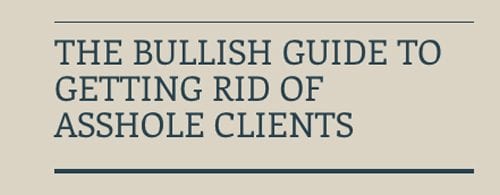
I’ve been reading your column and it’s honestly become a lifeline for me. I grew up being taught that income wasn’t something you could control or seek to increase, you just got what you were handed. Being a graduate, (Psychology), in this economy and walking into a dead-end job just compounded the problem, but reading your column has made me realise it’s not wrong but actually smart to think about where my money is coming from, and to cultivate multiple incomes. (I know it sounds obvious, but before that the only advice I’d ever heard on making money involved a lot of visualising and very little doing.)
My question is how do you begin building that life when everyone around you has a completely different set of beliefs? I love to write, so another long-held belief is that choosing that path means choosing poverty. My family and friends are sweet, but if I mention multiple income streams or freelancing they tell me I need to learn to compromise. I find this really patronising since I’ve supported myself for the last 8 years and I kept the dead-end, low income job for four of them in the name of paying my rent. I’m also having health issues at the moment that mean my youthful mojo isn’t where I’d like it to be. (I’m exhausted most of the time and get debilitating headaches from concentrating on even simple tasks.)
In the last month two of my older family members have passed away and a third has gone into assisted living care. I’m more aware than ever of the need to provide for my future self when she’s inevitably hit by a train and everyone she knows gets cancer, but I feel stumped since I’m my only support and my only experience is in maintaining a job I hate. Most of my friends’ money management consists of lowering costs on food and leisure and clothes and all the things that make life awesome rather than income increase. They think I’m being childish when I say I want the awesome.
How do you survive and even flourish when you’re a team of one with limited energy? How do you forge your way when no one around you can relate or guide you?
This question kind of killed me. In a good way — I’m glad you sent it. But goddamn, yes, I understand. I understand all of that.
In Bullish: Social Class in the Office, I mentioned a book called Limbo, about blue-collar kids struggling to adapt to the Ivy League and the white-collar working world. I recommend this book. You should check it out. I recognized in the book a lot of the attitudes I didn’t realize were causing me to shrink back, like a factory worker afraid of the boss-man.
You can be raised by very nice people – even very nice, very responsible people – and still be raised with totally self-defeating values about money, work, education, navigating institutions, and planning your life.
None of my parents and grandparents went to college, and my parents are really introverted, so they didn’t have adult friends I had any kind of contact with. Basically, I had never met an ambitious or intellectually-oriented adult, ever, until fairly late in life. In the ninth grade, I had a cute, innocent little relationship with a smart, nerdy kid from school, and I spent time at his house with his parents – a doctor and an artist, let’s say – and this little think-tank of a family filled me with both hope for the future and, well … this feeling that, if kids have parents like that, that’s practically cheating.
When I started my first company halfway through college, and later struggled to keep it running, I had relatives who made comments basically equivalent to, “Serves her right,” or “That’ll teach you to jump the line.” One relative implied that it was morally wrong not to start at the bottom and work your way up – without skipping a single rung. And these are perfectly nice people saying this sort of thing reluctantly, as though it is common wisdom, the way you’d say, “Well, I’ll bet she never eats raw goat meat from the side of the road again.”
Now in New York – a city that is now increasingly only for the rich – my social circle includes plenty of people who, if they had a good business idea, would definitely be able to raise $10K (apiece) from parents and grandparents. If you don’t jump a few rungs, you can’t survive in this town.
If you can’t have a support network of wealthy family members who know how to get shit done, the next best thing would be … nothing. Just people leaving you the hell alone to do what you’ve got to do.
But it seems that you can’t even get that – instead, you’ve got an entire circle of friends and family dragging you down.
One of the most important qualities for success is the ability to break away (see Bullish Life: Breaking Free From Terrible Situations). Often, if necessary.
You have to be willing to leave behind things you love, loved, or thought you loved, and you have to be willing to wash away what you thought were some of the things that defined you but that you don’t particularly like. You have to be willing to endure the pain of dislocation, loneliness, and massive change. It’s for your own good. Or – better – the good of your future self. You can’t fill your life with good things without sweeping away parts of your life that aren’t serving you.
I always recommend traveling alone, both as a way to enjoy yourself and as a way to clear your head – and to actually see where you are. You just don’t experience Stockholm or Delhi or Montevideo fully when you’ve brought someone with you who you could’ve talked to at home, and when you’re traveling in a small pack that is easily identifiable as a pack of Americans. You can’t blend in, or pass for someone who might be an expat, or on a business trip. You’re not going to make friends with the bartender in the way you would if you had been reading a book alone at the bar at 2pm. You can’t stop and contemplate a work of architecture for twenty minutes without explaining yourself. Your surroundings will not wash over you and make you realize how there are truly a lot of ways to live, and how you want to live your life better.
(See Bullish: How to Travel Like a Gentlewoman.)
Obviously, traveling takes money, but traveling also takes the ability to get on a plane by yourself, and to make decisions without consulting anyone, and to solve your own problems. The reason I mention it is that these are a lot of the same personal qualities you need to build a life free from the drag of those who would keep you down. Willingness to get on a plane alone, and the ability to have a good time (or, better, a meaningful time) alone with your thoughts and plans, are very much like willingness to move, alone, to a city where you don’t know anyone, and figure it out from there. If you need guidance, you seek it out from someone new. You find the right person to seek out that guidance from. Sometimes it takes awhile. You endure rejection and false starts. But this is the way.
People who get too ensconced in a community can immure themselves someplace they don’t want to be. (Do you know about immurement? It’s walling someone into a building or bridge until they suffocate. I’m really happy to have a chance to use this GRE word in an appropriate metaphorical context. I think it works here.) The kind of people who really cherish their high school yearbooks and moon over the old messages and stay in touch with everyone are much more likely to be held in a big, draining bear hug by the values and standards of the community they were raised in. If you want that, fine. But there are seven billion people in the world. You can meet new people who share your values, and who keep you sharp.
People are most influenced by the twenty people they spend the most time around. It’s kind of a zero-sum game. You need to choose your own community.
Some people will think you’re a little cold. That’s fine. Indiscriminate warmth is very time-consuming.
So, the first thing you need to do is stop running your plans, ideas, and dreams past people who are just going to take a big, disempowering, lower-middle-class crap on them.
You can still love those people. But plenty of people refrain from discussing politics, religion, and money with the people they love. You need to refrain from discussing your career and finances with these people. Boundaries are okay. Boundaries are necessary.
Make a list somewhere. If you want, title it “Holiday card list,” in case anyone finds it. List everyone who has given you horrible advice, condescended to you, or told you to “grow up” when you aim for something better for yourself. From now on, you do not discuss your plans with them.
Is there anyone on the list you just don’t really want to be friends with anymore? Cool, you’re allowed to stop. Cross them off (or, you know, actually just send them a holiday card but stop calling them). For everyone you do want to maintain relationships with, try writing next to each person’s name the biggest thing you have in common, or the thing you most want to talk about with them, or the activity you most like to do together. Aunt Doris would probably like it just fine if you never talked about your job and you just spent time with her corgis. There are some friends you just meet up with to talk about old times. You might actually be a better friend, daughter, relative, etc. by focusing your time with these people on what they care about, and keeping mum about your plans.
My opinions on Ayn Rand are public (they are mostly not positive), but I’ve always enjoyed this quote from Anthem: “What is my joy if all hands, even the unclean, can reach into it?”
(I also referenced that quote in Bullish Life: What To Do When You’re Surrounded By Lazy Idiots and Sweet, Fragile Simpletons.)
If someone on this list asks you a direct question, don’t tell them about anything you’re planning to do. Only tell them about things you’ve already done. Somehow I developed this instinct early on. It’s been a challenge to turn it off in a work environment – I hate sharing drafts or works-in-progress – so that’s why I’m recommending a pretty clear list of people you apply this policy to. You also need supportive people you come to trust with your ideas-in-progress.
So, yes, then you need to meet some people who think the way you do. For me, moving to NYC solved that in an instant. No one here is going to tell you to “be realistic” and just stick to your dead-end job. If you said you were starting a side business with the hope of leaving your full-time job, anyone in NYC who had anything negative to say would probably just be jealous, because they would know that the job market sucks and that’s a really good idea. More likely, everyone would be really supportive, or they would tell you how they or other people they know have done that, or they would maybe just nod and move on because that’s a really normal thing to say here. (“My rent is really high. I don’t have a TV. I do freelance work after hours. I’m hoping to get a book deal in the next couple of years. I like artisanal cupcakes.” ALL NORMAL. Oh, and I really do know someone who stores high heels in her oven.)
I have no idea where you live. (I did notice your UK/Canadian spellings, so maybe you live in a place where you can quit your job and still have health care? Awesome.) Please ask yourself whether your city is serving you. Is there a better place for you to be? There are achievable rooms for rent even in very expensive cities, and having roommates can actually be a great way for a newcomer to a city to get oriented. Somehow it’s easier to make new friends in a new place. “Yeah, I’m checking out this trivia night / skeptics club / kickball group because I just moved to town and want to meet people” will actually cause others to befriend you in a new town, even NYC, but is a little weird someplace you’ve been living for ten years (people will probably think you just got divorced).
If you decide to stay wherever you are, how do you meet new and different people? Don’t just think about meeting people like you, although that would be an improvement. Think about meeting people like you, but several levels above you. People who are where you want to be, or people who have more options than you can imagine, so maybe what they’re doing is what you would do if you had similar options.
When I was in a smaller town, I learned a lot from going to venture capital events. Usually a venture capitalist from out of town would give a speech about how his firm invests in startups, and then there would be a Q&A, which always included, honestly, some pretty dumb questions from people who couldn’t be bothered to google “venture capital” before arriving to get a basic Wikipedia definition of the topic at hand. So even as a 22-year-old woman with no connection to the world of finance, I felt like I belonged there as much as anybody. Maybe I’d be the one with the next great idea.
What else is in your town? Find a way to do some work for the richest and most connected people in town (and by “connected,” I mean preferably to a wider world outside your town). Go to art events and meet people with no money but who make amazing things. I know artists who live in filth and can barely afford food, and yet are some of the most driven people I know: no one could dissuade them from doing what they had to do.
It can also help to meet some arrogant, entitled, super-successful total assholes. You don’t want to be like them, exactly, but they’ll help you find a middle ground between jerk-who-walks-all-over-people and Mom telling you to “be reasonable,” by which she means, “We have no natural defenses against exploitation, so why should you?” I’ve found that a lot of women’s idea of being ballsy and aggressive is wayyyyy under the radar of what successful men consider ballsy and aggressive. So meet some ballsy, aggressive people, even if you don’t care for them that much.
Here’s something ballsy, aggressive people will agree on: you’re right that saving money shouldn’t be the main prong of your financial strategy. Say you make $35,000 a year. You could live on lentils, shop at thrift stores, and live in a campground. Or with mom and dad. Swear off anything fun that costs money. You still have to pay taxes, look nice enough for work, and transport yourself to your job, but if you really scrimped, you could put $10,000 a year in the bank. Okay. But there are Bullish readers who have written in to say that they now make $10,000 more per year because they read an article and were prompted to go ask their boss for a raise. In some cases, the boss was like, “What took you so long?”
You can increase your income a lot more than you can scrimp. It would certainly be impressive if you could put 25% of your salary in the bank. But someone who instead moves on from her $35,000 a year job when she sees it’s going nowhere, and then up and moves somewhere and meets the right people and ten years later makes $150,000 a year, has increased her income by 329%. You can’t save 329%; it’s not mathematically possible.
Whatever field you want to shift into, or whatever kind of business you want to start, I remind you that MOST PEOPLE DON’T DO THINGS. At all. So if you decide you want to master search engine optimization in your spare time, and perform this service for free for a few nonprofits and local businesses to build your client list, and then develop three levels of packages you can offer to clients, and then start advertising and networking and asking for referrals, well, that’s really achievable, and it doesn’t really matter that there are other people doing it, because the vast majority of people don’t know anyone who performs this service, and you seem nice. People don’t actually search out the “best” provider for most services, because usually people who need a service don’t have a way to judge who’s best. They decide based on price and convenience and who seems nice.
(See Bullish Life: You Know What I Find Inspiring? Mediocrity.)
There are a lot of businesses like that where, really, there’s no such thing as a degree in that field, so you can study up and become an expert.
You mention that you don’t have a lot of energy. Worse, concentrating gives you debilitating headaches. First, is there something you can do about this? (Is it possible that this is related to stress from your job/life situation?) Please get a second and third opinion. When I was depressed and in a dead-end situation in a dead-end town, I viewed my heath problems as sort of … fate. Sort of part of who I was. Instead, imagine that you are some kind of crazy-entitled Wall Street banker. Does a Wall Street banker who buys and sells people over lunch just accept that he can’t think without debilitating headaches? He does not. Be more demanding until you get answers and, if applicable, the good drugs. (Kind of random, but I was getting weightlifting headaches that were pretty immediately cured in about two sessions with a chiropractor. Sometimes you have to try a few things.)
In any case, you will need to focus. Multiple income streams are an excellent ultimate goal (see Bullish: How to Run Your Career Like a Business), but most of us know someone who has lots of income streams and they all suck – you know, the handyman-dogwalker who occasionally models but never has any cash? You don’t want that. You probably need one really good income stream before you start looking for other income streams. That either means keep your job and develop one great thing on the side that could ultimately replace your job, or it means find a better job, get established, get promoted, ask for raises, and then start thinking about diversifying.
You will have to be ruthless about your time. If the headaches aren’t solvable, then manage them with data. What times of day are best and worst? Write down what you ate and when you got the headaches. Does sleep or exercise or your menstrual cycle have anything to do with it? Track it all, figure out the best times for you to improve your life in a focused way, and reserve those times for the most important work. That may require negotiating a different work schedule. Find a way. (One way to get the hours you want is to start by asking for a big raise and a new schedule, and then be willing to settle for just the new schedule.)
Carve out the time that works. Spend the time that you’ve got a headache at least making plans for exactly what you’re going to do during your work sessions. Visualize what a two-hour session of getting shit done would look like. What are the steps, what do you need to get started, and what will you have at the end? Your two-hour work session can be more productive than most people’s eight hours if you do this, because again: most people don’t do things.
I can also tell you that, if you follow through on all of this, in five years, it’s pretty likely that the relatives currently telling you to “be realistic” and “compromise” will change their tune. Once your plans have come to fruition, talking about your life and career will probably cause these same people to nod in a mystified way, and then change the subject, because they just can’t figure out what to add. And then sometimes they’ll brag about you to their friends.
That’s what I’ve got. And please keep in mind that, while I may seem like a voice in the desert for writing this, there are actually a lot of people just like me, and they’re really not against letting you join them. You get to decide what world of people you turn your attention to.









